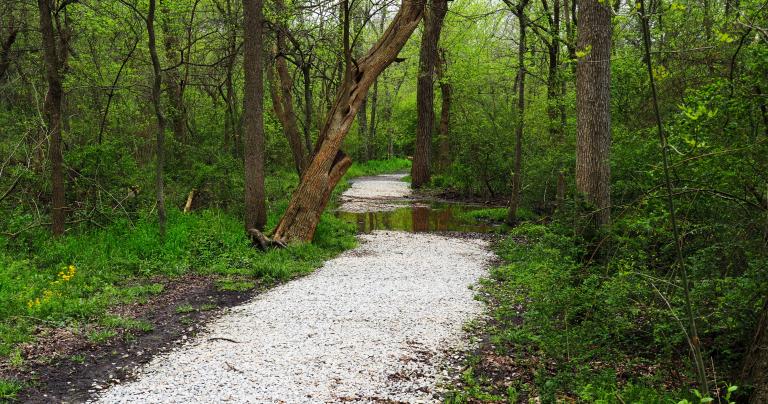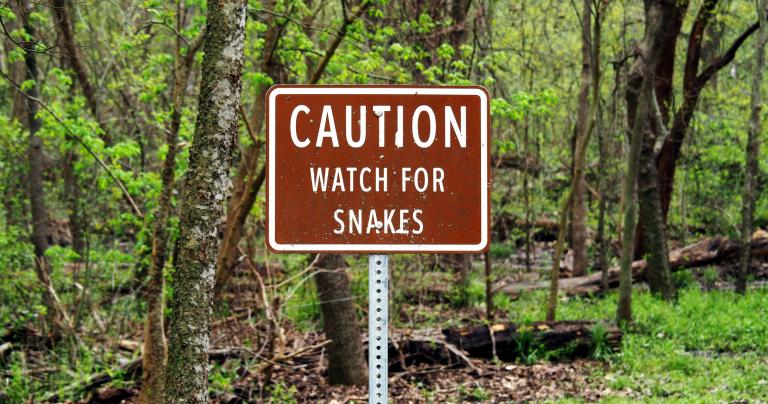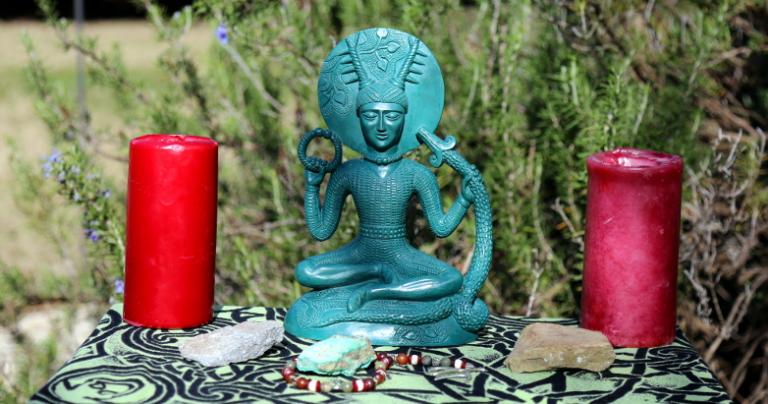Recently someone asked me what it felt like when I left Christianity. My response was that it was a long, gradual process that took years – the question as it’s phrased is impossible to answer.
In 2015 I wrote Escaping Fundamentalism, a post that distilled my journey down to a step-by-step guide. I share that post once or twice every year and I always get positive feedback on it. But this recent question made me realize that as good as that post is, it can leave a reader with the impression that this was a journey of a few months. In reality it was a journey of almost 40 years.
Your journey doesn’t have to take that long. But it’s never a quick and easy process, and I think it’s worth detailing the steps I took to get from where I was to where I am.
Step 0: Believing what I was taught as a child
I think we all start here. Our parents teach us their religion – whatever that happens to be – and we accept it, because why shouldn’t we? And even if it doesn’t seem right, as small children we don’t have the breadth or depth of knowledge to understand that there are other possibilities.
I was taught that the Bible is the literal and inerrant “Word of God,” that the Earth is 6000 years old, and that evolution is “a lie of the devil.”
Mainly, I was taught that the “the saved” were going to heaven and everyone else was going to hell. “Everyone else” included atheists and Buddhists and Jews (even though they’re “God’s chosen people”), but also people who aren’t the right kind of Christians: Catholics, Episcopalians, and any others who aren’t “born again.”
I occasionally hear people say “I never believed any of that stuff!” I take them at their word, but I struggle to understand how they figured it all out at such an early age. Perhaps their immersion was less intense than mine.
My immersion in fundamentalism was intense and sustained. I believed what I was taught.
Step 1: Realizing something is wrong
But at some point, I started questioning what I was taught. I think this started about age 10 and really intensified about age 16.
Part of it was learning science. Public schools in Tennessee in the 1960s and 70s pretty much avoided evolution, but I loved science and I did plenty of reading on my own. Science doesn’t have all the answers, but the answers is has are pretty reliable.
If the fundamentalists were wrong about evolution and the age of the Earth, what else were they wrong about?
More than that, though, I couldn’t resolve the ethical dilemma of a God who was supposedly all-wise, all-powerful, and all-good who would cast millions of sentient beings into eternal torment for believing the “wrong” thing. None of the Calvinist arguments around “God’s justice” made any sense to me – and they still don’t.
The problem was that even though I realized I didn’t belong in a fundamentalist church, I was still living at home with my parents and I didn’t have a choice in the matter. So I couldn’t break away and start the healing process.
How long this took me: About 8 years.
How you can do it faster: Get out now. Once you realize fundamentalism is wrong, get completely away from it.
Step 2: A kinder, gentler Christianity
I never considered becoming an atheist. Something deep inside me has always whispered “there’s more” – I just had no idea how much more.
Much of my extended family was and still are Methodists. They preach the love of God, not the wrath of God. They put their faith into action to try to make the world a better place. They’re still struggling with social issues, but they’re making progress. Methodists and other Mainline Protestants are a kinder, gentler Christianity.
But their scriptures and creeds still preach exclusivism. Few of them actually believe they’re the only ones going to heaven, but their words still say it. And for me, that just reinforced the “turn or burn” position of the fundamentalists.
I think this is what my Christian friends who grew up in moderate and liberal denominations don’t understand about why I’m a Pagan. They started here – this is their Step 0. They didn’t have go through Step 1. They don’t have to deal with the trauma I have.
I tried to be a kinder, gentler Christian throughout most of my 20s, but ultimately I had to make a clean break with Christianity. And that was very hard to do.
How long this took me: About 10 years.
How you can do it faster: Skip the step. If you want to be a kinder, gentler Christian, by all means become one. But unlike me at this point, you know there are other options available. Pursue what calls to your soul.
Step 3: Vague deistic universalism
As I moved into my early 30s I knew what I didn’t believe and what I didn’t want to do. I hadn’t yet figured out what should replace it. Mostly I didn’t give it a lot of thought. I later came to call this “vague deistic universalism” – there is a God (I was still stuck in monotheism) who created the world but mostly leaves us alone, who wants us to do good and be happy, and who will make sure everything works out OK in the end for everyone.
The problem wasn’t the deism or the universalism. The problem was the vagueness. With no regular practices and no spiritual depth, there was nothing of substance to fill the hole where the Christian creeds and scriptures used to be.
If you’re an inherently religious person – most of us are and I certainly am – you can’t just delete bad religion. You have to replace it with good religion – otherwise the bad religion seeps back in. But I didn’t understand that yet.
How long this took me: About 5 years.
How you can do it faster: Understand the need to “crowd out” bad religion with good religion a lot sooner. Ripping out the bad is one step, but it won’t be complete till you fill the hole with something good.
Step 4: Exploring Paganism
I discovered Wicca in 1993. I always wanted to be a witch – here was how I could do it, for real. I read book, bought tools, and cast spells. It was fun and exciting and full of promise.
But I never got beyond the 101 stage. The tentacles of fundamentalism were still in me. Ignoring them and intellectually denying them hadn’t made them go away. Deep down I was still afraid the fundamentalists were right and I was wrong, and if so I was headed straight to hell.
I spent eight years dabbling, sitting on the fence between Paganism and Christianity. I spent eight years trying to turn vague deistic universalism plus magic into a working religion. It was a sheer and utter failure.
And then I had an epiphany. Someone – maybe Danu, maybe Cernunnos, maybe Someone else – screamed at me “GET SERIOUS OR MOVE ON!”
I decided to get serious.
How long this took me: 8 years.
How you can do it faster: Don’t dabble. Dive into the deep end from the beginning.
Step 5: Studying Paganism
I finally started dealing with the core religious issues that had troubled me since my childhood. I read Pagan books. I read Buddhist books. I read Christian books, where I finally learned some of the Christian history they never taught me in Sunday School. I learned that while there have always been overzealous Christians, the kind of apocalyptic fundamentalism I grew up in didn’t even begin until the mid-1800s.
And I started practicing. Prayer and meditation. Monthly and seasonal celebrations. Less “let’s see what I can make happen” spell work and more “let’s manifest this need” work.
Things finally started to get better. When I had my first group initiation, I crossed a line and I got really better.
But the tentacles of fundamentalism weren’t completely gone.
How long this took me: 5 years.
How you can do it faster: This work has to be done and I’m not sure how much it can be speeded up. But the more of it you do in earlier steps, the faster this step will go.
Step 6: Experiencing the Gods
Looking back I think it’s safe to say I’ve always had experiences of Gods – that was Cernunnos I felt deep in the woods as a child, even though I had no context to recognize Him for who and what He is. There were others that were less clear.
But when I had the first ecstatic experience of Cernunnos in a Pagan context, that was pretty much the end of fundamentalism. Intellectually, I already knew that fundamentalism was wrong. Now, I knew spiritually and emotionally that there are many Gods.
After that, fundamentalism was like a ghost – not an active spirit, just the psychic remains of a traumatic experience. It would appear and then fade away, getting weaker and weaker over time, no longer able to interfere in my life.
I haven’t seen this particular ghost in several years, and I don’t think I’ll see it again.
How long this took me: I’ll be here the rest of my life… sorta kinda.
How you can do it faster: I have no idea.
Everybody moves at their own speed
The whole purpose of this post is to give a complete answer to the question of what it felt like when I left Christianity. It wasn’t a once-and-done thing – it was a process that took almost 40 years.
Your journey isn’t my journey – you don’t have to take this long. If you’re trying to break free from fundamentalism, I hope it doesn’t take you anywhere close to this long.
But I reject the well-meaning people who say “this is how long you needed to take.” No.
Realistically I couldn’t get out of the fundamentalist church as long as I was living at home with my parents. But once I went away to college at 18, I could have made this a priority. I didn’t, for reasons that made sense at the time but that delayed me finding my true path and kept me living in fear for years longer than necessary.
Your journey will be different from mine. My prayer is that it moves as swiftly and as surely as possible.



















